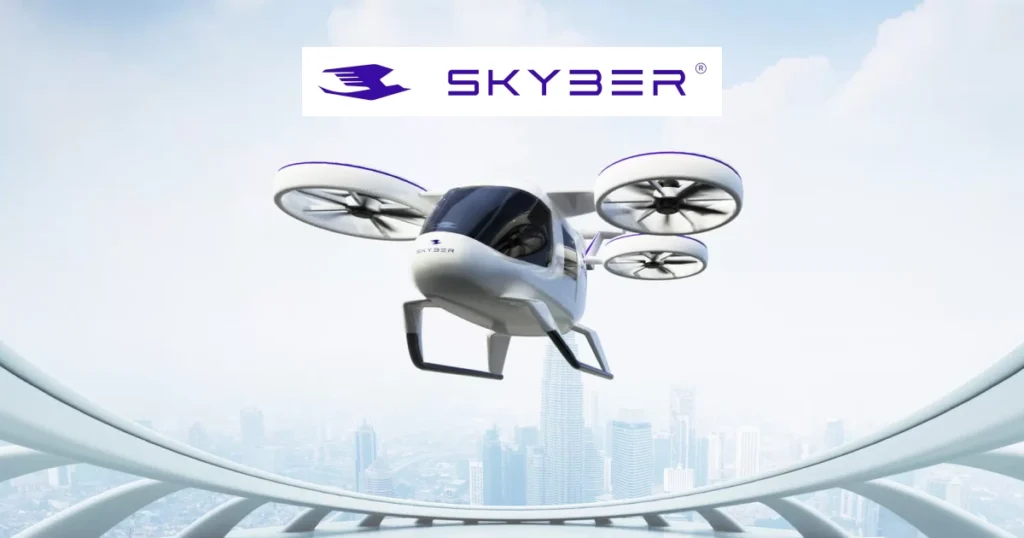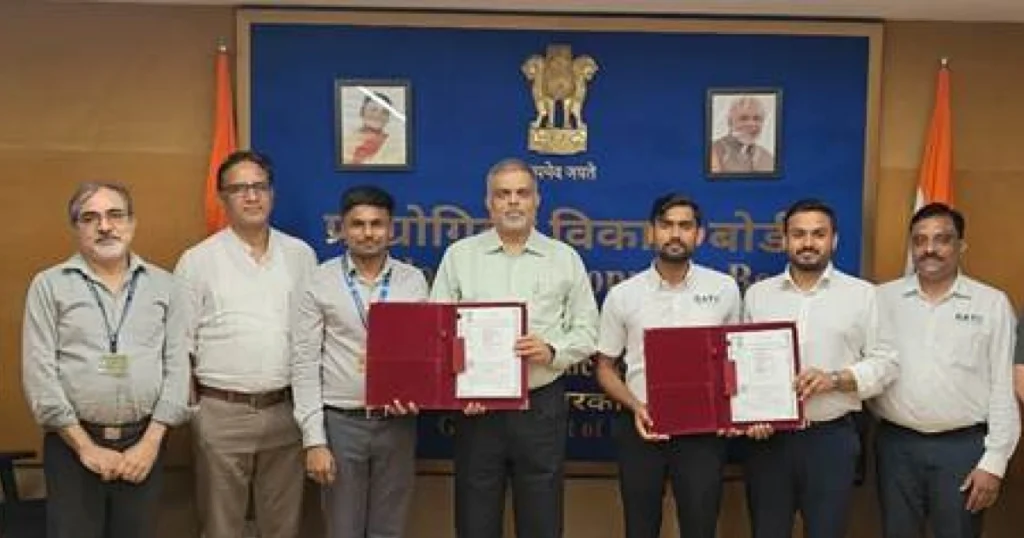Founded in 2023, SKYBER Aerospace is a deep tech aerospace startup headquartered in Bangalore, that is revolutionizing the landscape of aerial mobility with its cutting edge UAV (unmanned aerial vehicle) solutions.
The startup, co-founded by Joseph George and Abhishek Sircar, is committed to solving some of the most complex challenges in modern industries through customized, AI-driven drone technologies and innovative aerial mobility platforms.
Addressing the Challenge of Aerial Mobility and Logistics
SKYBER Aerospace’s journey began with a clear focus, which is to provide a solution for industries that require fast, efficient, and safe aerial operations.
From surveillance missions in hostile territories to delivering critical supplies in complex terrains, traditional methods of transport face significant challenges.
Helicopters, manned aircraft, and ground vehicles often come with high costs and environmental impacts.
Additionally, these methods pose potential risks to human lives, making them less efficient in many scenarios.
In an era where industries are looking to streamline processes while reducing carbon footprints, SKYBER Aerospace provides an alternative that is not only more efficient but also more sustainable.
Its advanced UAVs are engineered to handle diverse array of tasks, including precision agriculture, firefighting, crowd control, surveillance, videography, and disaster response.
By combining cutting-edge photonic AI chipsets, in-house custom-built UAV frames, and autonomous mission capabilities, SKYBER aims to deliver solutions that are faster, safer, and greener than traditional methods.
Pioneering Innovation: Photonic AI Chipset
SKYBER Aerospace, in collaboration with INVIGION, is currently developing the world’s first AI-driven photonic computational chipset specifically designed for UAVs.
This revolutionary technology harnesses the power of light-based data processing to significantly boost UAV performance.
Although still in the development phase, the photonic AI chipset promises faster decision-making, real-time analytics, and energy-efficient operations, all critical for advancing autonomous drone technology.
By enabling edge computing and reducing heat generation, this chipset aims to push the boundaries of AI-powered UAV capabilities once fully realized.
Custom-Designed UAVs for Industry-Specific Needs
What sets SKYBER Aerospace apart is its ability to offer highly customized UAV solutions tailored to specific industry requirements.
The company’s in-house R&D team designs and prototypes drones from the ground up, ensuring each model meets the exact specifications needed for its intended application.
Whether it’s manufacturing durable frames using carbon fiber and composites or integrating flight controllers, sensors, and AI-powered avionics, SKYBER’s drones are engineered to push the boundaries of what’s possible in aerial mobility.
Their drones are not just about hardware innovation; they are powered by a sophisticated software stack.
SKYBER offers an end-to-end software platform for UAV operations, combining data capture, AI-driven analytics, and real-time decision-making powered by Microsoft Azure.
This software solution ensures that SKYBER’s drones deliver actionable insights and unmatched operational efficiency across industries such as agriculture, mining, and infrastructure.
Real-World Impact and Use Cases
With over 100 unique smart UAV units already deployed across diverse industries, SKYBER Aerospace is rapidly establishing itself as a leader in advanced drone technologies.
Its smart drones are proving invaluable in scenarios such as:
- Disaster Management: Offering quick surveillance data and logistical support during rescue operations.
- Agriculture: Utilizing AI-driven spraying technology for efficient and cost-effective pesticide application.
- Ammunition Drop and Firefighting: Providing military-grade precision for critical missions like ammunition delivery and firefighting in high-rise buildings or forest fires.
- Logistics and Payload Movement: Enabling efficient and eco-friendly transport of payloads ranging from 300 grams to 110 kg across complex terrains and hostile environments.
- Urban Passenger Mobility: SKYBER’s vision of aerial passenger vehicles, including two-seater air taxis, aims to revolutionize urban transportation by offering fast, zero-emission flights across congested cityscapes.
The Road Ahead: Aerial Mobility for the Future
Looking ahead, SKYBER Aerospace envisions a future where aerial mobility plays a crucial role in addressing urban congestion and reducing carbon footprints.
The company is actively working on advanced aerial passenger vehicles, with plans to commercially launch these air taxis by 2029.
These two-seater aerial vehicles, designed for a maximum speed of 110 km/h and a range of 90 km, will offer a sustainable and time-efficient alternative to traditional urban transport.
SKYBER’s roadmap outlines steady progress, from product design in 2026 to a global commercial launch by 2031.
As the company continues to innovate, it aims to become a globally trusted brand in the aerial mobility space, driven by its core values of trust, creativity, inclusion, and excellence.
A Vision of Sustainable Innovation
SKYBER Aerospace is not just a tech company; it is a force of change in the aerial mobility sector, addressing critical global challenges such as climate change, inefficient logistics, and urban congestion.
By integrating green energy solutions, advanced AI processing, and photonic technology, SKYBER is set to redefine how industries think about aerial transport and logistics.
Through strategic partnerships, including its role as a Microsoft’s ISV Partner, SKYBER has the resources and expertise to accelerate its innovations and bring them to market at scale.
With its sights set on a future where drones and air taxis are a part of everyday life, SKYBER Aerospace is poised to lead the next revolution in aerial mobility.



















